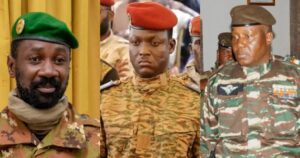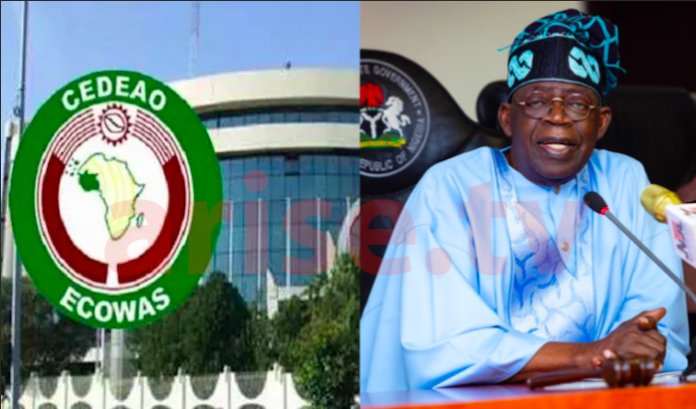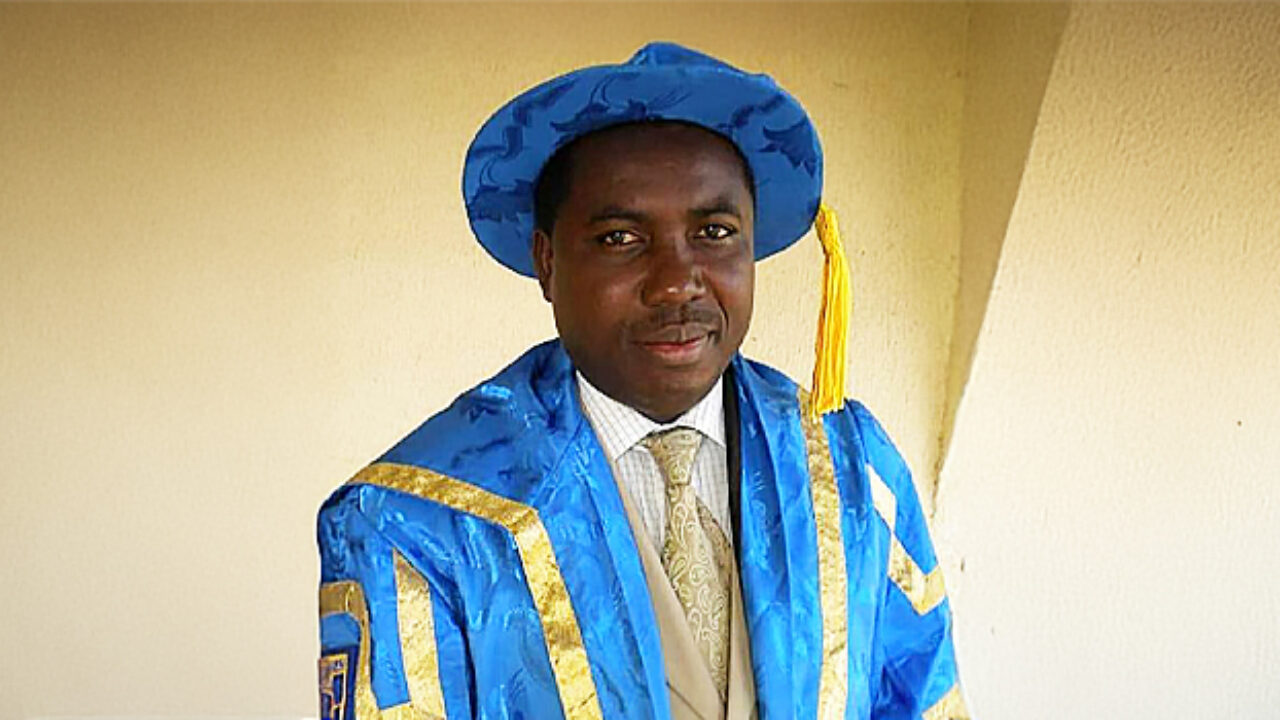The Nigerian government has said that it remains open for engagement with Burkina Faso, Mali and Niger so that they may return to the Economic Community of West African States (ECOWAS) fold so that all the people of the region would continue to enjoy the economic benefits and democratic values that the sub-regional bloc embraces.
Recall that in a joint statement released in Ouagadougou, Bamako and Niamey by their military leaders – Capt. Ibrahim Traoré (Burkina Faso), Col. Assimi Goita (Mali) and Brig. Gen. Abdourahamane Tiani (Niger Republic) – the three countries had on Sunday, January 28, 2024 announced their withdrawal from the regional economic bloc.
The military leaders alleged that ECOWAS had moved away from the ideals of Pan-Africanism and it is now “under the influence of foreign powers.”
The three Francophone West African countries noted with “great regret, bitterness and great disappointment” that the 49-year-old organisation had jettisoned the ideals of its founding fathers, betrayed its founding principles and now becoming “a threat to its member states.”
“After 49 years of existence, the valiant people of Burkina, Mali and Niger note with great regret, bitterness and great disappointment that their organisation has moved away from the ideals of its founding fathers and from Pan-Africanism.
“Furthermore, ECOWAS, under the influence of foreign powers, betraying its founding principles, has become a threat to its member states and its populations, whose happiness it is supposed to ensure,” the communiqué said.
The trio further said the regional economic bloc failed to provide assistance to them as part of our existential fight against terrorism and worse insecurity.
“When these states decided to take their destiny into their own hands, it adopted an irrational and unacceptable method by imposing illegal, illegitimate, inhumane and irresponsible sanctions in violation of its own texts.
“All these have further weakened populations already bruised by years of violence imposed by exploited terrorist hordes and remotely controlled.
“Faced with this continuing situation, Their Excellencies, Capt. Ibrahim Traoré, Col. Assimi Goïta and Brig.- Gen. Abdourahamane Tiani, respectively, Heads of State of Burkina Faso, the Republic of Mali and the Republic of Niger, taking all their responsibilities in the face of history and responding to the expectations, concerns and aspirations of their populations, decide in complete sovereignty on the immediate withdrawal of Burkina Faso, Mali and Niger from the Economic Community of West African States,” the communiqué added.

Reacting to the trilateral decision, the ministry of foreign affairs in a statement signed by the spokesperson, Mrs Francisca Omayuli, expressed Nigeria’s sadness over the countries’ joint decision.
The statement reads: “Nigeria expresses its sadness over the pronouncement by the Military authority in the Republic of Niger indicating that the Republics of Burkina Faso, Mali and Niger have withdrawn membership of their countries from the ECOWAS.
“For half a century, ECOWAS has worked to promote peace, prosperity and democracy in the region. Nigeria stands with ECOWAS to emphasise due process and shared commitment to protect and strengthen the rights and welfare of all citizens of member states.
“Nigeria has worked sincerely and in good faith to reach out to all members of the ECOWAS family to resolve the difficulties being faced. It is now clear that those seeking to quit the community do not share that same good faith.
“Instead, unelected leaders engage in a public posturing to deny their people the sovereign right to make fundamental choices over their freedom of movement, freedom to trade and freedom to choose their own leaders.
“Nigeria remains open for engagement with Burkina Faso, Mali and Niger so that all the people of the region can continue to enjoy the economic benefits and democratic values that ECOWAS embraces. Nigeria further appeals to the international community to continue to extend its support for ECOWAS and the vision of closer partnership, co-operation and integration.”
For its part, ECOWAS said in a statement that it was yet to receive a formal letter stating the exit of the countries from the sub-regional body.
“The attention of the Commission of the Economic Community of West African States (ECOWAS Commission) has been drawn to a statement broadcast on the national televisions of Mali and Niger announcing the decision of Burkina Faso, Mali and Niger to withdraw from ECOWAS.
“The ECOWAS Commission is yet to receive any direct formal notification from the three Member States about their intention to withdraw from the Community,” the commission said in a statement.
It further said: “The ECOWAS Commission, as directed by the Authority of Heads of State and Government, has been working assiduously with these countries for the restoration of constitutional order.
“Burkina Faso, Niger, and Mali remain important members of the Community and the Authority remains committed to finding a negotiated solution to the political impasse.
“The ECOWAS Commission remains seized with the development and shall make further pronouncements as the situation evolves.”
Also commenting on the action of the three countries, the former minister of foreign affairs, Prof Bolaji Akinyemi, pointed fingers at Russia for the exit of Burkina Faso, Mali and Niger Republic from ECOWAS.
He said the involvement of Russia was aimed at weakening weaken Western influence in Africa.
“We have got a major crisis on our hands. The fact that Mauritania withdrew and heaven didn’t fall, but the fact that Togo went, shows that ECOWAS is in disarray.
“While Togo alone would go either way, it shows that only Togo is disobeying a collective decision. I see the hand of Russia in this.
“I think Russia is emboldening these three countries to break up ECOWAS as part of its efforts to weaken Western influence in this part of the world, and yet Russia has not shown the capability to help these three countries to combat the Jihadists, ISIS, who are roaming wild in the Sahel. So we have a confused situation on our hands.
“We have a crisis at hand, and the reason I call it a crisis is because, in terms of landmass, that’s about half of ECOWAS, so we’re not dealing with just a little hiccup on our hands.
“ECOWAS is being turned into a confrontational field between Russia and the USA. The fact that this statement came just after U.S. Secretary of State, Anthony Blinken, left Nigeria is significant and we should pay attention to it.
“Another issue is that Guinea has a military regime, but the country is not going along with these three, whether in the alliance that they have formed or kicking out the French.
“They said they’re leaving immediately. However, ECOWAS protocol says one year, and during that one year, you carry out all your responsibilities.
“With their decision to leave immediately, are you going to force them to stay or use the confusing situation to try to bring palliative into the situation?” he said in an interview on Arise News.
However, former director general of the Nigerian Institute of International Affairs, Prof Bola Akinterinwa, said the exit of the three countries is the case of a house divided against itself and called on ECOWAS to address the root cause of the trilateral decision.
“It is good and it is bad. Articles 1B and E of the 1991 Abuja Treaty that established the Economic Community of West African States, ECOWAS, see ECOWAS as a sub-region.
“While the United Nations considers Africa a region, for the purpose of integration, Africa was divided into five major regions: West, North, East, Central, and South Africa.
“West Africa should not be considered a region but a sub-region. In this case, in Mali, Niger, and Burkina Faso, it is a house divided against itself. The way forward is the Africa approach. They should address what led to the problem – military junta.
“But they never considered that it was the people’s coup. They should sit down and see how they can resolve a coup supported by the people.
“A constitutional change of government should not be over exaggerated. They should stop preaching a democracy of double standards.”




















































